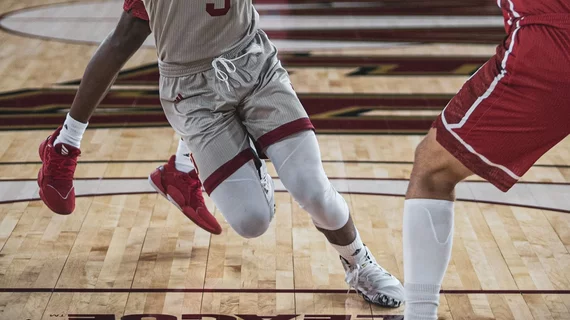Physicians at the Hospital for Special Surgery in New York City have used machine learning to predict outcomes following arthroscopic reconstruction of the knee’s anterior cruciate ligament (ACL).
Such forecasting can help distinguish ACL-injured individuals who are likely to meaningfully benefit by the surgery from those who may need to adjust their postsurgical expectations or even forego the operation.
The team was guided by a sports-medicine specialist dubbed by the New York Daily News as “the go-to orthopedic surgeon for many of the greatest athletes on the planet.”
David Altchek, MD, medical director for the New York Mets and a medical consultant for the NBA, along with lead author Kyle Kunze, MD, and colleagues, describe their work in a study published this month in the Orthopaedic Journal of Sports Medicine.
The team trained six different AI algorithms on retrospective data from 442 patients in a registry fed by 27 experienced knee surgeons at their institution.
In rigorous testing and validation phases, the model that turned out the best performance was an elastic-net penalized logistic regression (ENPLR) model.
This demonstrated “excellent predictive ability” at foreseeing knee recovery from two years onward post-surgery, Kunze and co-authors write.
(For those keeping score, the team documented ENPLR’s accuracy metrics as follows: C-statistic, 0.82; calibration intercept, 0.10; calibration slope, 1.15; and Brier score, 0.068.)
Kunze and colleagues also note that five patient characteristics emerged from the project as keys to projecting a “minimal clinically important difference” to be gained by ACL arthroplasty.
These were a history of contralateral knee surgery, preoperative knee extension, medial collateral ligament examination grade from extension to 30 degrees, method of femoral fixation and body mass index.
“These findings have important implications for preoperative patient counseling and shared decision-making strategies,” Kunze and colleagues comment.
The authors acknowledge several limitations in their study design, including its retrospective approach.
“[I]t is possible that there was heterogeneity in the physical examinations of the 27 surgeons,” they comment in their discussion. “For example, although knee extension loss and recurvatum were highly predictive variables of not achieving a clinically important outcome, it is theoretically possible that testing specifically for hyperextension was not performed in all patients.”
At the same time, however, testing for knee hyperextension “is a routine part of the knee examination by sports medicine surgeons at our institution, and the rate of missing data was low for this variable, adding confidence to the knee extension findings and predictive performance of this variable.”
The study is available in full for free.

